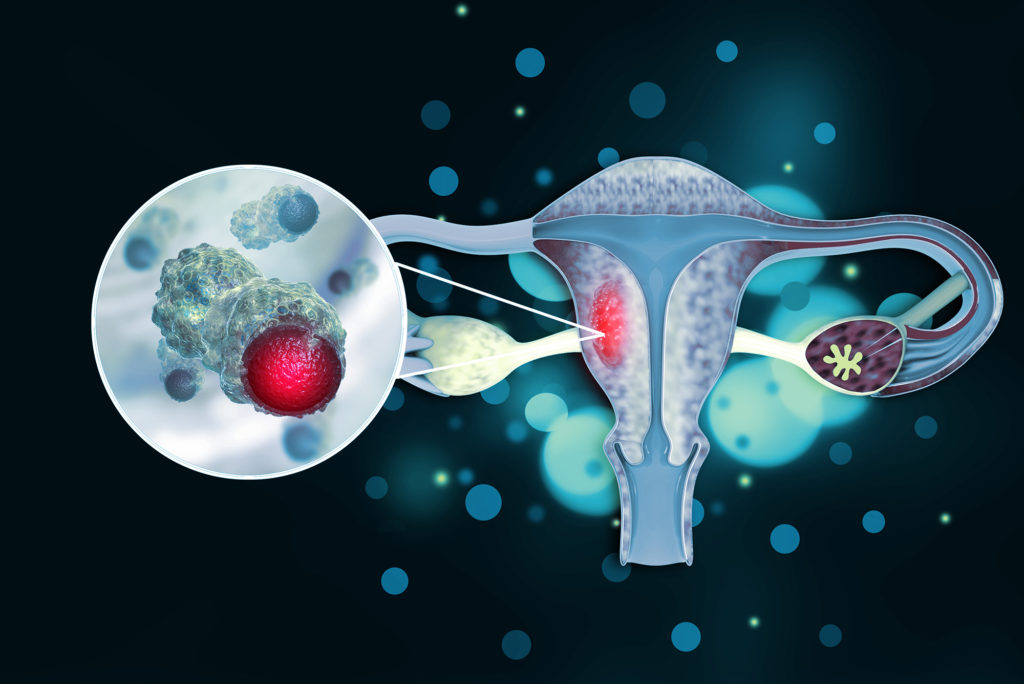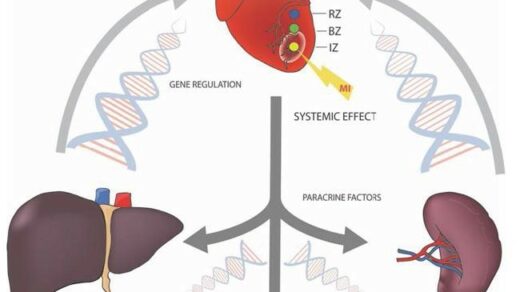Researchers conducted a study to identify differentially regulated signaling pathways and genes related to endometrial cancer (EC) disease progression.

Statistics from the American Cancer Society indicate that endometrial cancer (EC) is on the rise among women in the United States. While it more commonly affects older women, researchers are finding that EC is the only gynecological cancer today increasing in incidence and mortality among younger women. Not to be confused with the benign condition of endometriosis, EC tumors are highly heterogeneous and are a challenge to diagnose and treat. Since these heterogeneous tumors also develop in differential growing environments, most studies that use EC cell lines to diagnose patients or develop treatments do not translate to efficacy in vivo.
“Current methodologies for diagnosis and treatment rely on the use of cell lines as models for tumor biology. However, due to inherent heterogeneity and differential growing environments between cell lines and tumors, these comparative studies have found little parallels in molecular signatures.”
In a new study, researchers from the Uniformed Services University of the Health Sciences and the National Institutes of Health compared signaling pathways and genes among EC cell lines and tumors in The Cancer Genome Atlas (TCGA). Their goal was to identify parallels between cell lines and tumors that may be associated with regulating EC transformation and progression. In December 2021, their research paper was published as the cover of Oncotarget’s Volume 12, Issue 26, and entitled, “Comparative transcriptome analysis between patient and endometrial cancer cell lines to determine common signaling pathways and markers linked to cancer progression”.
“Identifying mutually dysregulated biomarkers and signaling pathways in cell lines and tumors can advantageously provide a more expedient method for studying mechanisms in cancer biology.”
The Study
The researchers aggregated available information from TCGA endometrial cancer tumor samples and EC cell lines. They found that technical biases were present in their raw data due to inherent variation in tumor collection, processing and storage between specimens and other variability within the data set. To produce a greater overall similarity in transcriptome profiles between samples, they carried out normalization procedures which equalized comparisons between library size, resisted against outliers and removed unwanted variation.
“Due to the need for better normalization, we utilized another normalization method to mitigate all possible innate biases in our study. The RUVg method is fundamentally a modified version of RUV-2 that adjusts for technical effects as described previously [39–41].”
Next, the researchers conducted differential expression analysis between genes in TCGA tumor samples and endometrial cancer cell lines. A set of genes were identified for each stage of EC progression using volcano plots, which highlighted differentially expressed genes that were up- or downregulated. They also performed gene set enrichment and ingenuity pathway analyses to determine signaling pathways that are involved in EC cancer progression.
“Specifically, the LXR/RXR activation, neuroprotective role for THOP1 in Alzheimer’s disease, and glutamate receptor signaling pathways were observed to be mostly downregulated in advanced cancer stage.”
Conclusion
“In addition to distinguishing the expression pattern of genes between stages in our study, we also identified the top five signaling pathways that may be involved in cancer progression.”
The researchers in this study present a comparative transcriptome analysis between early and advanced stage endometrial cancer. Many of the downregulated signaling pathways and differentially regulated genes that came forth from their analyses were related to the central and sympathetic nervous systems. The exception to this statement is the LXR/RXR pathway (involved in metabolism and carcinogenesis), which shifted from being upregulated to being mostly downregulated as EC cancer stage progressed. The researchers were forthcoming about limitations in their study—primarily related to the need for improved normalization procedures to organize data.
“We demonstrate a substantial down-regulation of genes between early and advanced staged tumors with an altered expression pattern of neuronal signaling pathways and markers. These findings may serve as a novel and promising development in the cancer field as the initial function in these neuronal markers may have a different role and function in the periphery.”
Click here to read the full research paper, published by Oncotarget.
ONCOTARGET VIDEOS: YouTube | LabTube | Oncotarget.com
—
Oncotarget is a unique platform designed to house scientific studies in a journal format that is available for anyone to read without a paywall making access more difficult. This means information that has the potential to benefit our societies from the inside out can be shared with friends, neighbors, colleagues, and other researchers, far and wide.
For media inquiries, please contact media@impactjournals.com.




